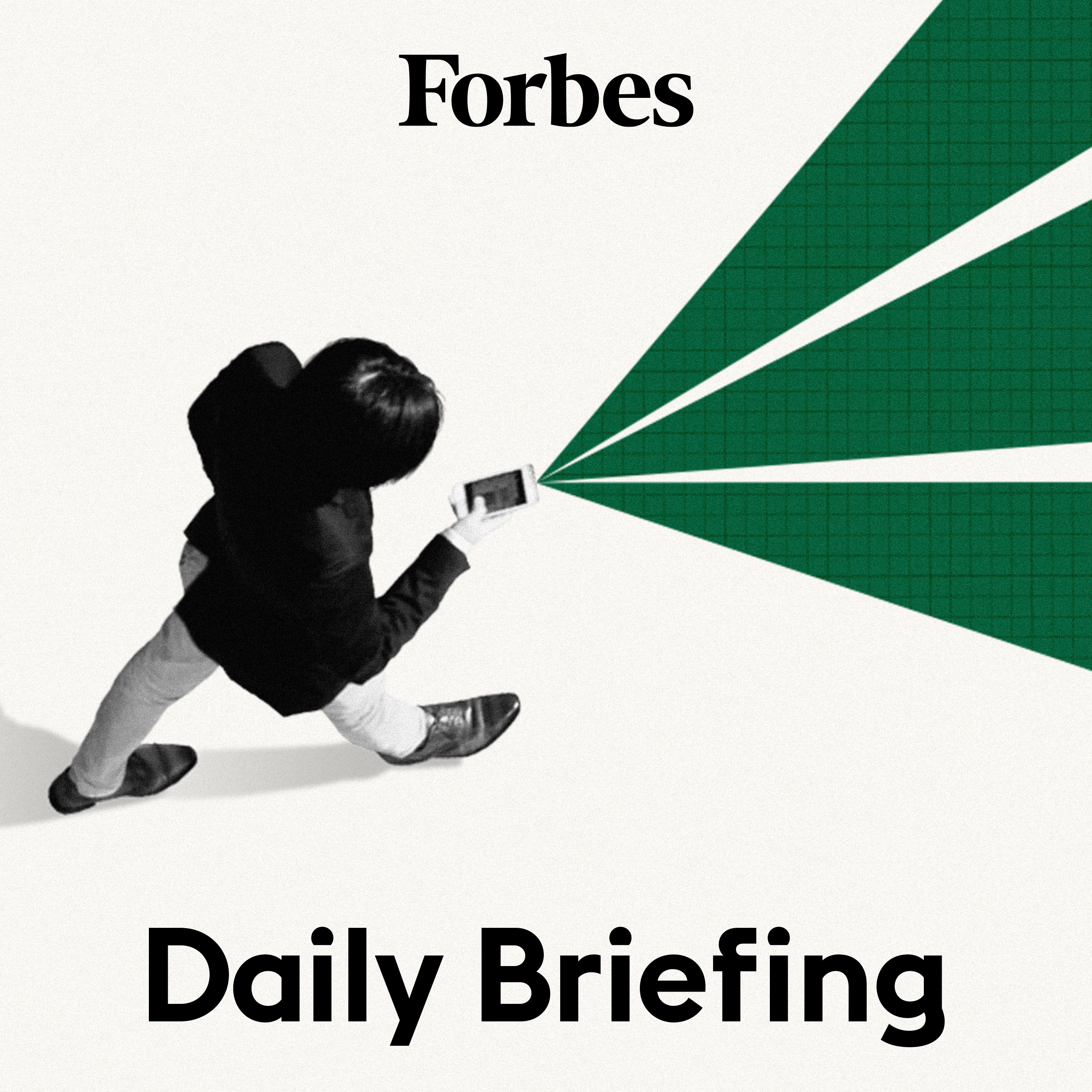It’s been more than eight years since content farms overseas started “American” fake news pages on Facebook. Their business, now fueled by AI, is still going strong.
See Privacy Policy at https://art19.com/privacy and California Privacy Notice at https://art19.com/privacy#do-not-sell-my-info.
Here's your Forbes Daily Briefing for Tuesday, August 27th. Today on Forbes, the foreign pro-Trump fake news industry has pivoted to American patriotism. The idea of America is big business on Facebook. The social network has hosted more than 100 pages that have adopted American patriotism as a theme, boasting names like Proud American, Proud to Be an American, American Story, and We Are America. But a large swath of those pages, despite their names, aren't American at all. Instead, they're run by foreign click farmers, many of whom are based in Macedonia, who use AI to pump out a near-endless ocean of click-baity soup. Post-sharing prayers for American soldiers, rewritten tweets, memes, and pictures of old Hollywood pin-up girls link out to AI-generated articles against which the click farmers can sell advertising. Headlines like, quote, "dedicated firefighters risk their lives to save others," end quote, "a father's heroism, the tragic story of Phil Delagrazi and his son, Anthony, tease short, uninformative articles on websites plastered with often sexual advertisements." The pages promoting them fake American-ness because they get paid every time someone clicks on one of their links, and in the advertising world, American clicks are some of the most valuable. A Forbes review identified 67 Facebook pages, now taken down, that identified themselves as champions of American news, culture, or identity, but were actually based overseas. As of August 20th, they had more than 9 million followers combined, more than the Facebook pages of The Wall Street Journal or The Washington Post. 33 of them were run from Macedonia, with others spread out across 23 different countries, including Canada, France, Morocco, Venezuela, and Vietnam. Click farmers, especially those from Macedonia, have a long history on Facebook. During the 2016 presidential election, teenagers in a small Eastern European country pushed fake dollars in ad revenue. In 2019, similar Eastern European pages ran the same playbook, this time reaching nearly half of all Americans on the platform. Now, AI has given those same operations the capacity to produce near-infinite volumes of low-quality or outright fake news, and in at least some cases, this AI-produced slap is breaking through. The pages have begun using generic AI-generated imagery, think bald eagles, stars and stripes, camo soldiers, and the occasional Statue of Liberty, to appeal to American Facebook users, and in at least some cases, it's working. One Post made last week by the Canada-based page American Patriots, featured an AI-generated photo of an American soldier and his children, and received more than 100,000 likes and 35,000 comments. The American Patriots page, like most of the others, directed people from Facebook to click farms featuring low-quality articles. Metaspoke's person Margarita Franklin told Forbes that while AI does make content generation easier for spammers and scammers, their primary challenge has always been getting eyeballs on their pages, whether they're made with AI or not. A recent meta-threat report found that generative AI has, quote, "provided only incremental productivity and content generation gains," to, quote, "threat actors, because the cost of creating low-quality clickbait articles has always been pretty low." When Macedonian content farmers first became big on Facebook in 2016, they leaned hard into hyper-partisan ragebait focused on divisive issues like immigration, trans rights, race and policing. The theory was simple, right about what people were most likely to engage with, and at the time, posts about those issues often topped the charts of Facebook engagement. But Facebook's algorithm has shifted away from politics in the eight years since then. The company began aggressively demoting political posts after the January 6th, 2021 capital riots, which were organized in part on meta-platforms. Some of the American patriotic pages still featured political topics, with recent posts on topics including critical race theory and trans rights. In the aggregate, though, the pages didn't focus on politics. More often, they featured formulaic tabloid stories like tales of cheating spouses, like the "You Won't Believe What He Did Next" variety, or disrespected blue-collar workers who get revenge on the elitists who snub them. For full coverage, check out Emily Baker-White's piece on Forbes.com. This is Kieran Meadows from Forbes. Thanks for tuning in. [BLANK_AUDIO]
